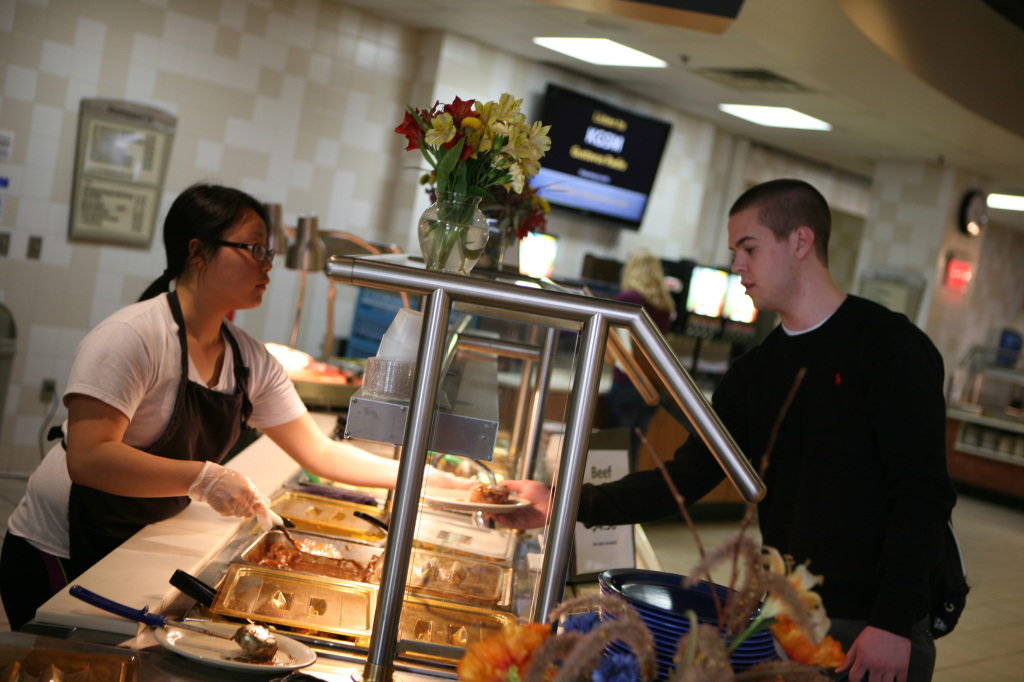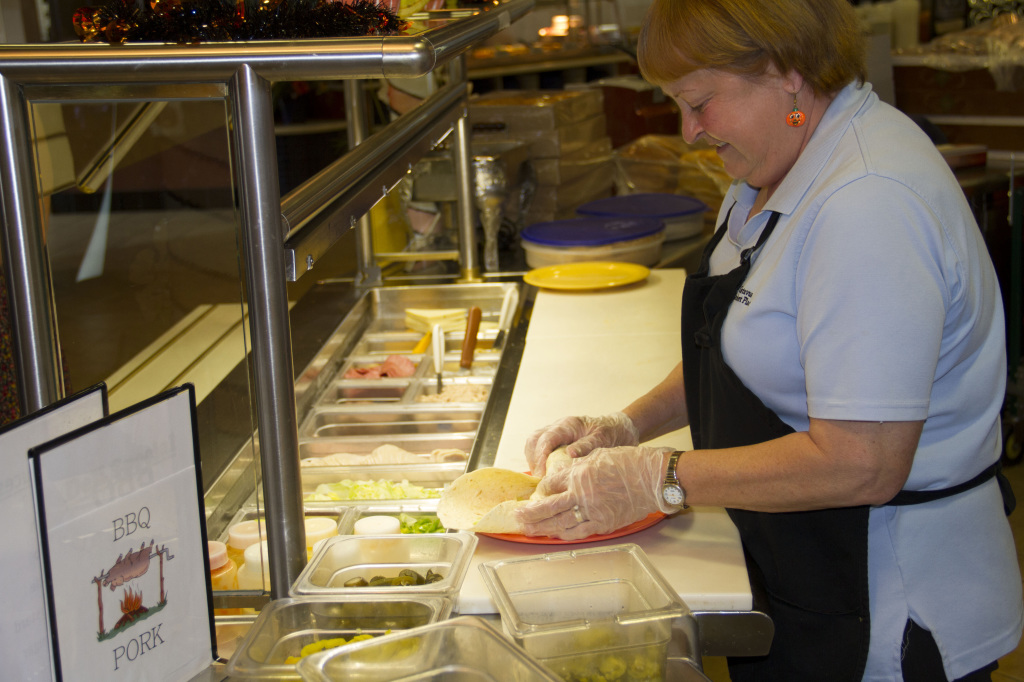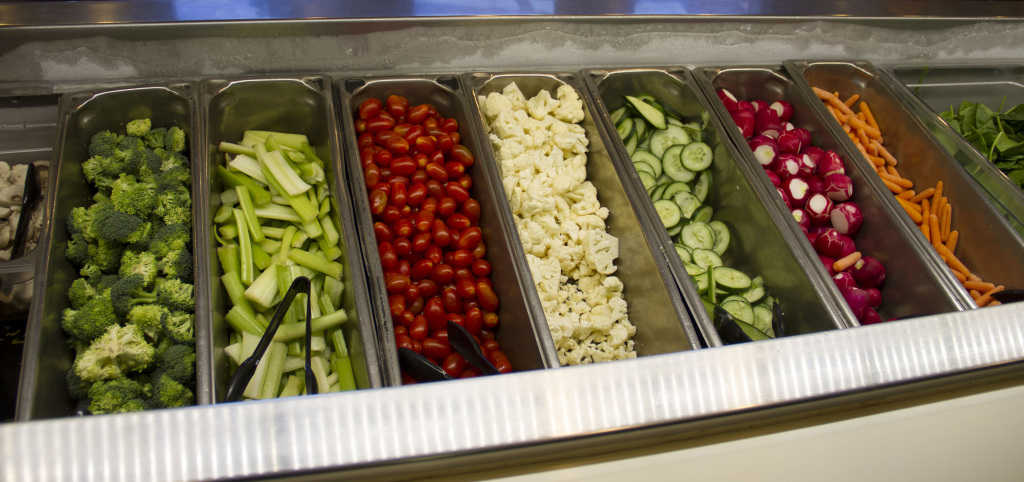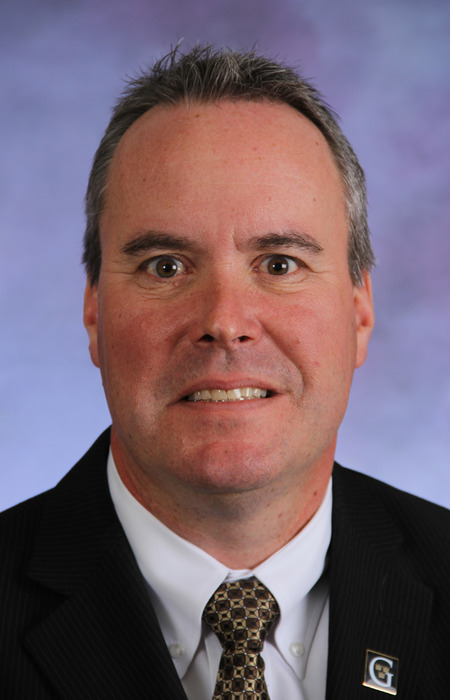 Gustavus was recently ranked No. 7 on Niche’s 2015 Best Campus Food list, which ranks 1,175 colleges based on meal plan cost and opinions from students. Cappex, another website designed to help students make their college choice ranked Gustavus in the top 25 of their Best College Food list.
Gustavus was recently ranked No. 7 on Niche’s 2015 Best Campus Food list, which ranks 1,175 colleges based on meal plan cost and opinions from students. Cappex, another website designed to help students make their college choice ranked Gustavus in the top 25 of their Best College Food list.
According to Niche, “a high ranking indicates the college offers a variety of healthy, quality food options that accommodate various dietary preferences and that the students are happy with the quality of campus food.” Gustavus offers many food options for students, including vegan and vegetarian food, gluten-free, and various ethnic foods, all at a reasonable price. But the Gustavus Dining Service goes one step further in their service for students.
The dedicated and long-serving dining staff make a point to listen to students’ needs and actively participate in their education, which Director of the Dining Service and Book Mark Steve Kjellgren ’86 believes is what sets Gustavus’ Dining Service apart from other colleges.
“We try hard to make the community know that this is something we’re doing for them. This is a service we’re providing for them, not at them. So in order to do something for this community, and have them respond well, we need to know what it is they want. And the only way for us to know that is for them to tell us. We’ve been able to open this community dialogue in a way that other colleges haven’t,” Kjellgren said.
The Dining Service is always open to new ideas or suggestions, and if an idea makes sense for the community as a whole, and students can convince them it is a good idea and worth pursuing, they will give it serious thought and see if it’s something they can implement.
The Dining Service also gets a lot of input from its nearly 350 student employees. But in addition to informal input from members of the Gustavus community, the Kitchen Cabinet program was started by Kjellgren and Professor of Philosophy and Gender, Women, and Sexuality Studies Lisa Heldke ’82 to serve as an advisory body to the Dining Service. The Kitchen Cabinet meets once a month and brings together Dining Service staff, professors, and students to talk about suggestions and thoughts related to the Dining Service.
“The work of the Kitchen Cabinet keeps in focus the question, ‘what is the mission of this college and what are our core values?’ Heldke said. “We try to think about how the work of the Dining Service can enable the College as a whole to achieve that mission and to uphold those values. This is the place in which we ask big and abstract questions about what it means to live out those values on the ground. The committee is invaluable experience for those students who serve on it because they get the opportunity to participate in these discussions with faculty and staff, and to do so as colleagues, not as only students.”
Food and Education Intersections
While the cafeteria is traditionally seen as a place simply to come and eat in between classes and studying, the Dining Service has been active in students’ education in unique ways.
“What we look at is how the Dining Service can be an active participant in the educational process. So beyond just food tasting good, and keeping students happy, we want to say, what more is there that we could be offering in terms of educating the whole person,” Kjellgren said. “We really feel connected to the college. We feel like part of the community. So rather than this being a place where our staff come to work and just do what’s on their list that day, they’re more interactive and they’re more engaged with students. That’s sort of what our philosophy is here, and it seems to work.”
When students aren’t in the classroom learning directly from their professors, students have a chance to learn and grow through a number of programs that are supported by the Dining Service.
One such program is the Coca-Cola Educational Partnership Grant Program, which gives funding to students to carry out sustainability and community health projects around campus. After Gustavus’ beverage contract with Coca-Cola expired in 2012, instead of simply signing on with Coca-Cola for another ten years or so, Kjellgren wanted to rethink the school’s beverage contract.
Most beverage providers give a certain amount of money back to the school, which can be put toward anything. Kjellgren along with other Dining Service staff challenged beverage providers to be creative with their proposals, asking them to think about the resources their companies have and how those resources could be used to benefit the school. Along with other suggestions, Kjellgren asked if there was a way that the money that is given back to the school could somehow be tied up into a fund that could be tapped for educational initiatives.
Out of all the companies, Coca-Cola came back with the most exciting proposal, and Gustavus partnered with Coca-Cola for another seven years. Along with the regular services, the contract includes $20,000 a year towards a sustainability, health, and environment grant program. This became known as the Coca-Cola Educational Partnership grant program, and it allows students to send in proposals for projects around campus. Some past projects that received funding from the grant program include a research project to study the feasibility of a bike-share program at Gustavus, the Mental Health Wellness Fair, Stress Free Finals Week, and a Turn out the Light initiative to promote turning out the lights when leaving a room around campus.
 This was the first time Coca-Cola had done anything like this for schools, which prompted them to think about their contracts with other schools and companies.
This was the first time Coca-Cola had done anything like this for schools, which prompted them to think about their contracts with other schools and companies.
“After the first year of the program we had people from their headquarters come and review the grant applications and see the projects, and they were so excited about it that they said they were going to make this part of their proposals at other institutions,” Kjellgren said.
The Big Hill Farm is another program that serves to educate students. About six years ago, a group of students approached Kjellgren about having a garden on campus. Kjellgren was willing to help them start out, but wanted to make sure it would be a sustainable project. He found them a spot for the garden and the students rallied a group together to keep the garden going year after year. The garden began to grow in size and soon became known as Big Hill Farm. Now located near the Physical Plant, Big Hill Farm is run mainly by students, who have had to learn how to manage it and grow vegetables that can be utilized in the Gustavus kitchen.
The Dining Service buys almost everything that students grow at Big Hill Farm. They keep a tally of what students bring in throughout the year, and at the end of the season they write the students a check for the produce based on current market prices. The students use the money to buy seeds and equipment for the next year.
“This was a student idea that we just encouraged. We didn’t do it for them,” Kjellgren said.
When students have ideas, the Dining Service is ready to listen to them and help them make their ideas a reality, and this is reflected in the many student-initiated ideas and programs offered by the Dining Service. For example, the Dining Service transitioned to cage-free eggs and fair trade coffee and bananas because of student input.
 “The educational component of the college has really embraced what we do as a service provider. Instead of putting up the wall, saying we do the teaching and you do the feeding, they’ve sort of said there’s a lot of opportunities to practice what we’re talking about in the classroom. We talk about third world economies and fair trade in the classroom, and you get a chance to do it here,” Kjellgren said.
“The educational component of the college has really embraced what we do as a service provider. Instead of putting up the wall, saying we do the teaching and you do the feeding, they’ve sort of said there’s a lot of opportunities to practice what we’re talking about in the classroom. We talk about third world economies and fair trade in the classroom, and you get a chance to do it here,” Kjellgren said.
So while Gustavus does offer a variety of quality food at a reasonable price, the sense of community, willingness to listen and respond to input, and involvement in education is something that truly sets Gustavus’ Dining Service apart from other colleges.
“I can’t think of any other college or university or setting that I would rather be doing the work that I’m doing. And I think because of the long-term nature of our employees here, they must all like what they’re doing. And it’s not just because they love frying eggs. It’s not just because they love making grilled cheese sandwiches. It’s because of the people they’re making grilled cheese sandwiches for, and the relationships that they have with them,” Kjellgren said.
###
Media Contact: Director of Media Relations and Internal Communication Luc Hatlestad
luch@gustavus.edu
507-933-7510

Great article!!
Great job, Steve and everyone in Dining Services!